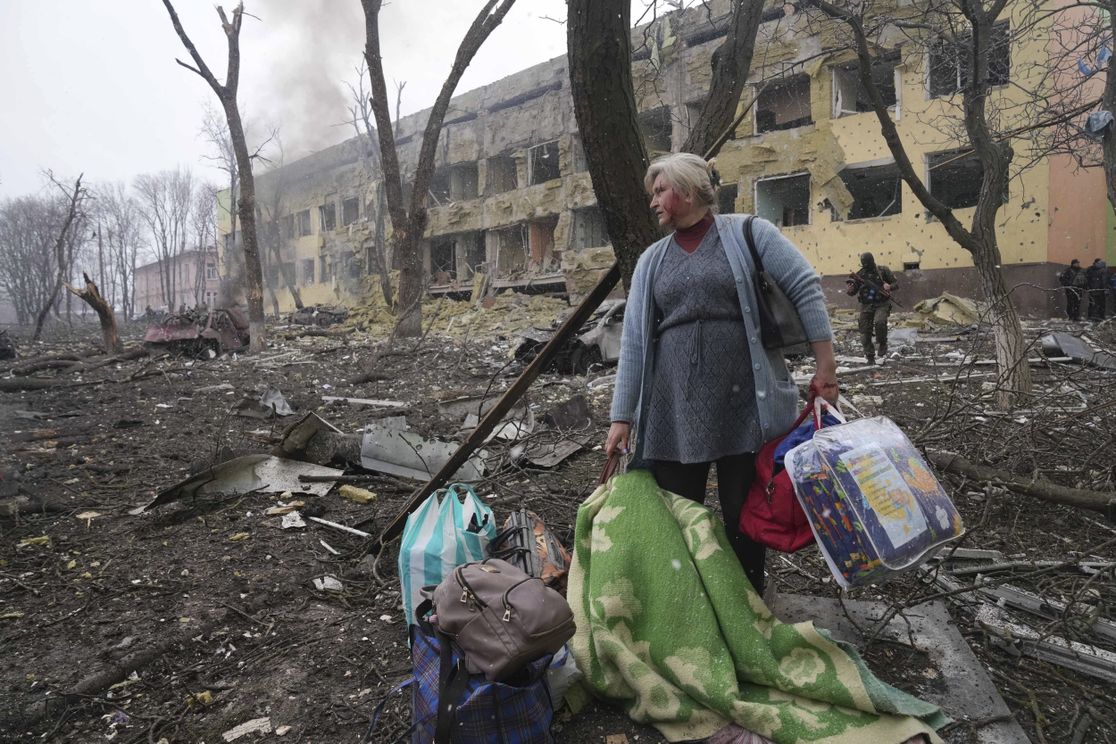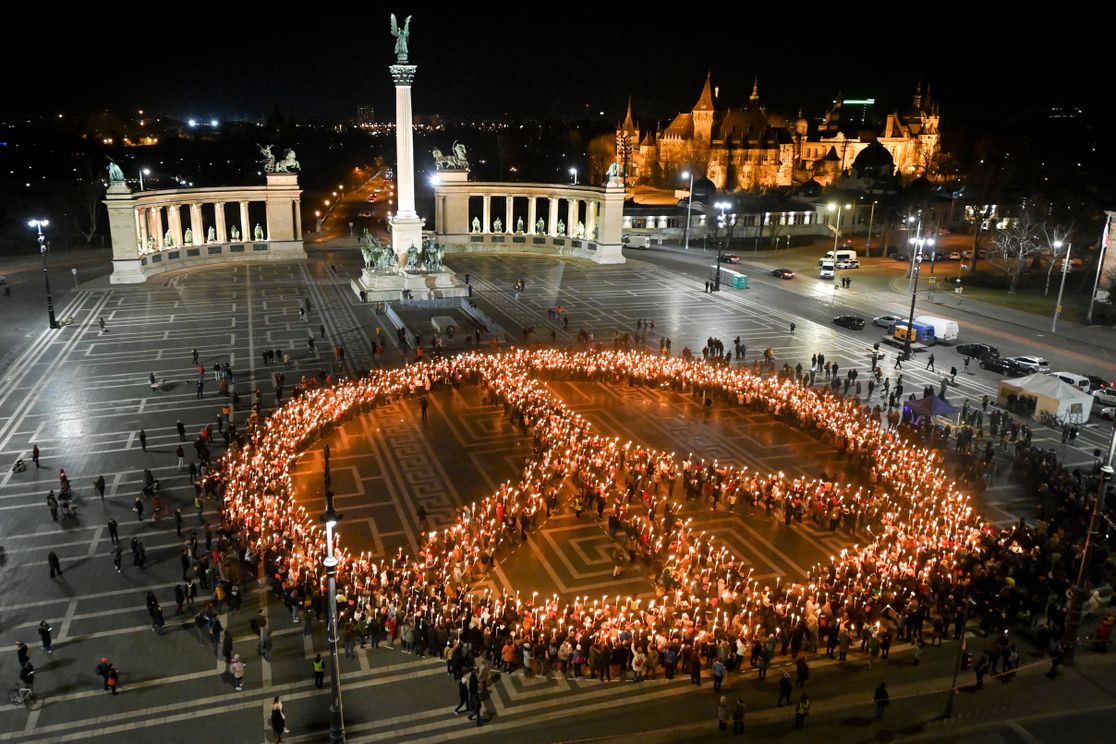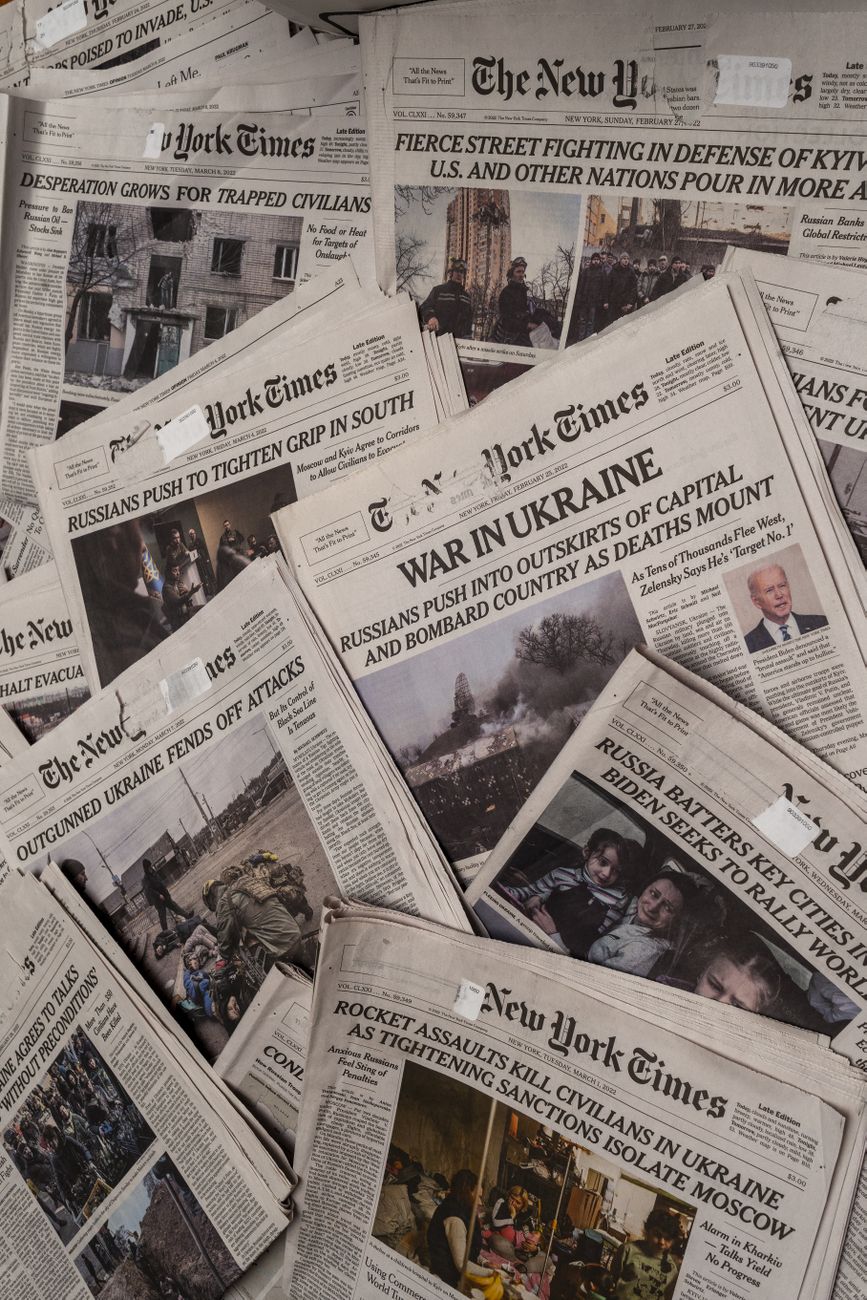| |
| |
| |
| Presented By Google |
| |
| Axios AM |
| By Mike Allen ·Mar 10, 2022 |
| Hello, Thursday. Smart Brevity™ count: 956 words ... 4 mins. Edited by Zachary Basu. |
| |
| |
| 1 big thing: Big Tech races the clock |
 Data: Axios reporting. Chart: Jared Whalen/Axios An increasingly hostile regulatory climate hasn't stopped Big Tech giants from continuing to seal billion-dollar deals. - Why it matters: There could be a clock on this. President Biden's antitrust enforcers are flexing their muscles around mergers, Axios' Margaret Harding McGill and Ashley Gold report.
State of play: Google's $5.4 billion bid to buy cybersecurity firm Mandiant is the latest in a string of high-dollar acquisitions by Big Tech. - Microsoft announced a $68 billion deal for video game company Activision Blizzard in January.
- Amazon is under regulatory review for its $8.45 billion purchase of Hollywood studio MGM, announced last year.
- Meta (then Facebook) bought Kustomer for $1 billion and Giphy for $400 million in 2020, just a few months before the FTC sued the company over past acquisitions.
👀 What we're watching: Sarah Miller, executive director of the American Economic Liberties Project, says: "[T]he new generation of antitrust enforcers will not be bullied." - Justice Department antitrust chief Jonathan Kanter warned in a January speech that he's skeptical of conditions imposed by regulators that are meant to "fix" mergers — and instead will seek to block deals likely to reduce competition.
Kanter and FTC Chair Lina Khan are widely expected to step up antitrust enforcement, bringing more cases against companies and acquisitions. - That means companies go into mergers expecting to fight regulators and take their chances in court, Adam Kovacevich, founder and CEO of the tech industry coalition Chamber of Progress, told Axios.
- There's a "greater willingness to litigate," he said.
Also on the radar: A number of competition bills are moving through Congress after lengthy investigations and hearings with tech CEOs. - The EU is working on the Digital Markets Act, which could prevent Big Tech "killer acquisitions" of rival firms.
Share this story. |
    |
| |
| |
| 2. Putin-Zelensky meeting raised at peace talks |
| A woman outside a maternity hospital that was shelled yesterday in Mariupol, Ukraine. Photo: Evgeniy Maloletka/AP Russian Foreign Minister Sergei Lavrov and his Ukrainian counterpart Dmytro Kuleba met in Turkey this morning for the highest-level peace talks since the war began, Axios' Zachary Basu reports. - The two sides discussed the possibility of a meeting between Russian President Vladimir Putin and Ukrainian President Volodymyr Zelensky, but otherwise failed to come to any agreement on a ceasefire.
The big picture: As Putin's frustration builds, Russian forces have increasingly turned to targeting civilians with indiscriminate shelling. (Photo above.) - The meeting came just one day after Russia bombed a maternity ward and children's hospital in the besieged city of Mariupol, killing three people in an attack that Zelensky called proof of genocide.
- Lavrov falsely claimed at his press conference in Turkey that Ukraine was the aggressor, at one point telling reporters: "We are not planning to attack other countries. We didn't attack Ukraine in the first place."
⚡ Breaking: The U.K. this morning froze the assets of seven Russian oligarchs, including Chelsea FC owner Roman Abramovich — who was in the midst of attempting to sell the storied London soccer team. Go deeper: Axios Ukraine dashboard ... Axios explainers. |
    |
| |
| |
| 3. Why we quit |
 Reproduced from Pew Research. Graphic: Axios Low pay was the top reason workers quit during the Great Resignation of 2021, Axios' Emily Peck writes from a Pew survey out yesterday. - People also quit because they felt disrespected.
Why it matters: Americans quit their jobs at record-high numbers last year. The pace of quits has slowed only slightly in 2022. Between the lines: Quitters aren't leaving the workforce; they're likely getting different (presumably better) jobs, as economist Elise Gould points out in this Twitter thread. - 78% of those who quit a job say they are still employed, according to Pew's self-administered web survey.
|
    |
| |
| |
| A message from Google |
| Strengthening American cybersecurity |
| |
 |
| |
| Widespread cyber attacks continue to threaten the private information of people, organizations, and governments around the world. That's why Google is investing $10 billion to expand zero-trust programs, help secure the software supply chain, and enhance open-source security. Learn more. |
| |
| |
| 4. 📷 1,000 words |
| Photo: Attila Kisbendek/AFP via Getty Images Protesters form a human peace sign in Heroes' Square in Budapest, Hungary, yesterday. |
    |
| |
| |
| 5. 🧠 Fear in Europe: Who's next? |
| Photo: Richard B. Levine/Sipa USA via Reuters Some European countries, watching Russia's brutal war in Ukraine, fear they could be next, AP reports. - Why it matters: Vladimir Putin "has said right from the start that this is not only about Ukraine,'' said Michal Baranowski, director of the German Marshall Fund's Warsaw office, but also "about the eastern flank of NATO and the rest of Eastern Europe."
Western officials say the most vulnerable could be those who aren't members of NATO or the European Union, and thus alone and unprotected — including Ukraine's neighbor Moldova and Russia's neighbor Georgia, both of them formerly part of the Soviet Union — along with the Balkan states of Bosnia and Kosovo. - Analysts warn that even NATO members could be at risk, including Estonia, Latvia and Lithuania on Russia's doorstep, as well as Montenegro, either from Moscow's direct military intervention or attempts at political destabilization.
Go deeper. |
    |
| |
| |
| 6. Weekly map: COVID cases plummet as America moves on |
 Data: N.Y. Times. Cartogram: Kavya Beheraj/Axios Daily COVID deaths fell by 24% over the last two weeks, from an average of more than 1,900 the week of Feb. 23 to 1,451 over the past week, Axios' Caitlin Owens and Kavya Beheraj report. - Why it matters: Deaths, a lagging metric, fall only after the number of cases and hospitalizations do. So a drop in the number of deaths is the truest sign that the Omicron wave is almost over.
Share this map. |
    |
| |
| |
| 7. Charted: History's hedge |
 Chart: Axios With inflation surging, gold — the traditional hedge on rising prices — has flirted with new record highs, Matt Phillips writes in Axios Markets. - Why it matters: Gold is traditionally viewed as a safe haven during times of crisis, especially by investors in emerging markets.
What's happening: Russia is one of the world's largest gold producers. Recent sanctions on the country have made buyers jittery about supply — leading some to stock up. |
    |
| |
| |
| 8. 🐦 Tweet of the day |
| From David Hume Kennerly, an iconic photographer who's been on the front lines of history for 50+ years (was just at the Capitol in January, taking pictures of Dick Cheney's visit on the riot anniversary): Go deeper: David Hume Kennerly's "Greatest Hits" gallery. |
    |
| |
| |
| A message from Google |
| Strengthening cybersecurity by training 100,000 Americans |
| |
 |
| |
| As widespread cyberattacks continue to exploit security vulnerabilities, robust cybersecurity depends on having the people to implement it. Google is pledging to train 100,000 Americans in fields like IT Support and Data Analytics through the Google Career Certificates program. Learn more. |
| |
| 📬 Sign up here for your own personal copy of Axios AM, PM and Finish Line. |
 | It's called Smart Brevity®. Over 200 orgs use it — in a tool called Axios HQ — to drive productivity with clearer workplace communications. | | |













No comments:
Post a Comment